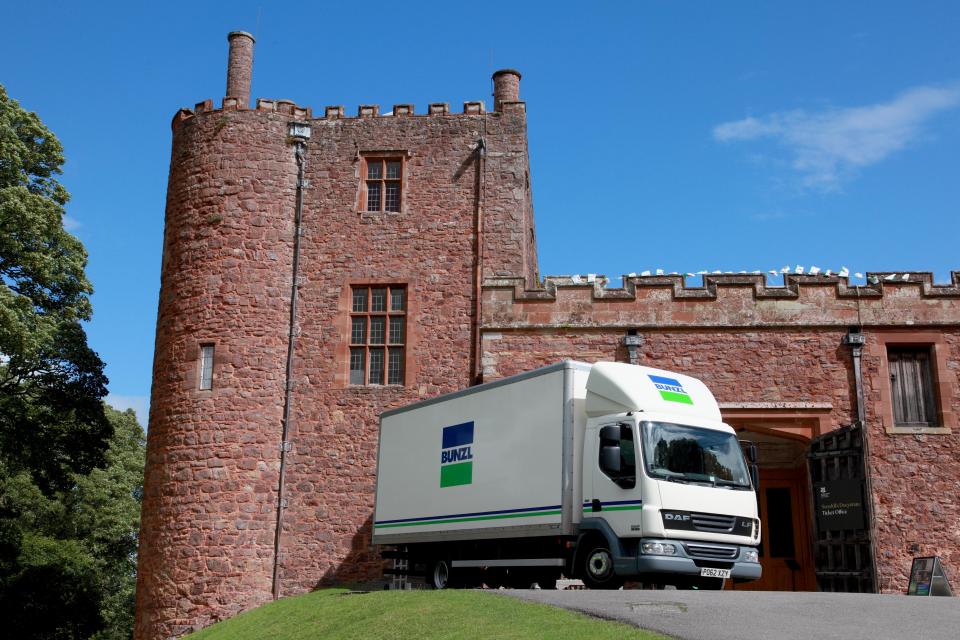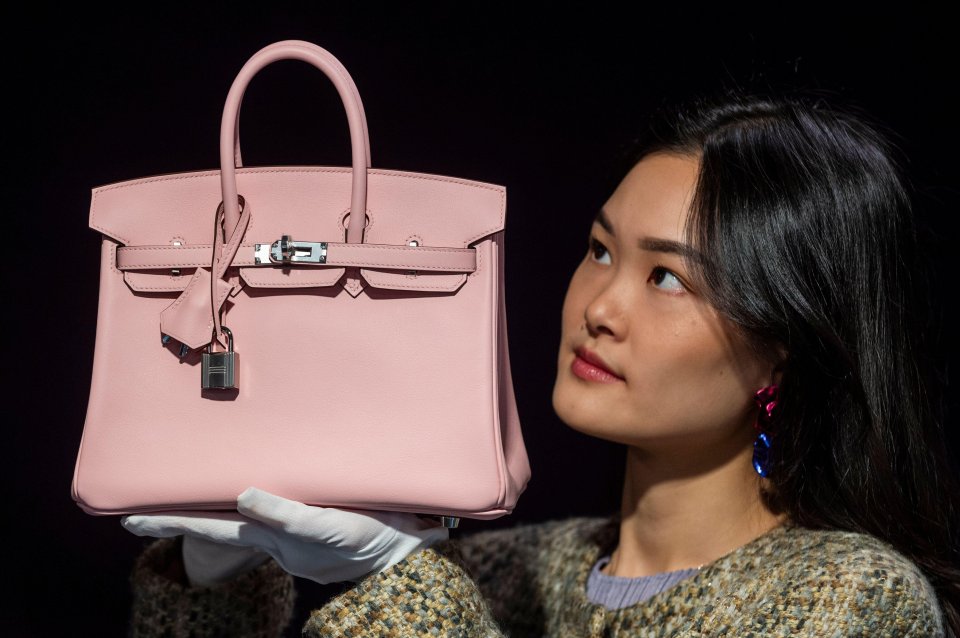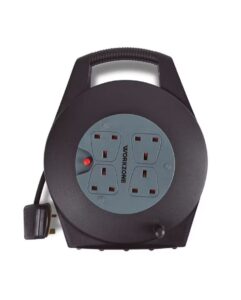BRITISH firm Bunzl saw its shares slump by more than a quarter yesterday — losing £2billion — after it issued a profit warning and abandoned its share buyback.
It comes amid raised fears for the company over the effects of US President Donald Trump’s trade tariffs on UK businesses.
The firm, which distributes everyday essentials like disposable coffee cups to cafés and food wrap to supermarkets, warned of weakness in North America — its largest market.
It said first-quarter sales rose just 0.8 per cent, much lower than expected.
Shares in the London-based company dropped around 28 per cent to a four-year low on the news.
Boss Frank van Zanten said that he was disappointed amid a “challenging trading environment”.
READ MORE ON business
He added: “We are taking decisive action to improve performance, particularly with regards to our largest business in North America.”
The company said it would pause its £200million share buyback scheme for the rest of the year, having already spent £115million this year.
It becomes the first FTSE 100 firm to halt a buyback programme since 2020, when the pandemic created economic turmoil.
Bunzl — founded in 1854 — delivers masks and bandages to hospitals, hard hats and eye protection to construction firms, and cleaning and hygiene products to hotels and restaurants.
Most read in Business
AJ Bell investment director Russ Mould said: “Bunzl is supposed to be a reliable stock.
It’s not supposed to pull the rug from under investors’ feet by delivering a major profit warning and abandoning a current share buyback. It could take some time to re-establish its credentials.”
EY POST OFFICE PROBE
ACCOUNTING giant EY may face another large fine after it was drawn into the Post Office IT scandal.
The Financial Reporting Council watchdog is investigating whether EY’s Post Office audits met standards “with particular reference to matters related to the Horizon IT system”.
More than 900 subpostmasters were prosecuted between 1999 and 2015 after faulty Horizon accounting software made it look like money was missing from their accounts.
EY said it takes its “public interest responsibilities extremely seriously” and would be fully co-operating.
Last week, the firm was fined £4.9million for breaching standards on checking the accounts of Thomas Cook before it collapsed in 2019.
LOSER VUITTON
LOUIS VUITTON and Dior owner LVMH has lost its crown as Europe’s largest luxury firm to Hermes, which sells £7,500 Birkin and Kelly handbags.
A profit warning sent shares in LVMH falling 7 per cent — reducing its market value to £210billion compared to Hermes’ £211billion.
LVMH, which also owns jewellery brand Tiffany & Co and beauty chain SEPHORA, said first-quarter sales were lower than expected as US shoppers cut back on beauty products and the Chinese market remained weak.
Sales in the three months fell 3 per cent to £17.4billion.
HIRE AND LOWER
RECRUITER HAYS has warned the downturn in global hiring will continue into next year.
It reported another slump in fees and has axed more than a fifth of its consultants in the last year, as companies put the brakes on hiring.
Fees fell 9 per cent in the nine months to the end of March, which the firm blamed on “increasing macroeconomic uncertainty”.
It said market conditions are set to remain “challenging” into the 2026 financial year and it plans to cut costs by £30million a year by mid-2028.
BUILDING SLUMP
BRITAIN’S biggest housebuilder Barratt Redrow dampened recovery hopes for its sector by revealing forward sales are down 10 per cent.
Builders have been hit by high interest rates and mortgage costs in recent years, which has left just 10,245 homes on order for the firm.
It said economic uncertainty increased — but it will build up to 17,200 homes this year.
Boss David Thomas added: “The fundamentals for our industry remain strong, with a clear need for new homes across all tenures.”
A HIGH ST DROP FOR WH SMITH
WH SMITH’S decision to flog its high street shops looks justified after profits at that arm of the business slumped by a quarter to just £20million for the last six months.
It announced last month it is selling its non-travel stores to Hobbycraft owner Modella Capital for £76million.
The WH Smith name will disappear from high streets and be will instead be replaced by a new brand, TG Jones.
The firm’s airport and railway stores are booming, with profits climbing 17 per cent to £63million in the last half year.
WH Smith said it expects to grow rapidly across airports and stations over the coming years, with a particular focus on North America.
It is planning new stores in US cities of Albuquerque, Dallas and Portland.
The firm’s CEO Carl Cowling said that the group is “well positioned for the peak summer trading period”.
US ride-hail firm LYFT drove into the Euro market with a £150million purchase of taxi app Freenow.
Previously owned by BMW Group and Mercedes-Benz Mobility, it operates in the UK, Ireland, Italy, Germany, France, Austria, Spain, Poland and Greece.
PRICES UP ON HOMES
THE average UK house price climbed by 5.4 per cent in the year to February, stats show.
Read More on The Sun
It was £13,000 higher, while average prices were £292,000 in England, £207,000 in Wales, and £186,000 in Scotland, the Office for National Statistics announced yesterday.
Jason Tebb, from property portal Onthemarket, said: “Two interest rate reductions in the second half of last year and one so far this year have had a positive knock-on effect on confidence.”
Unlock even more award-winning articles as The Sun launches brand new membership programme – Sun Club.













